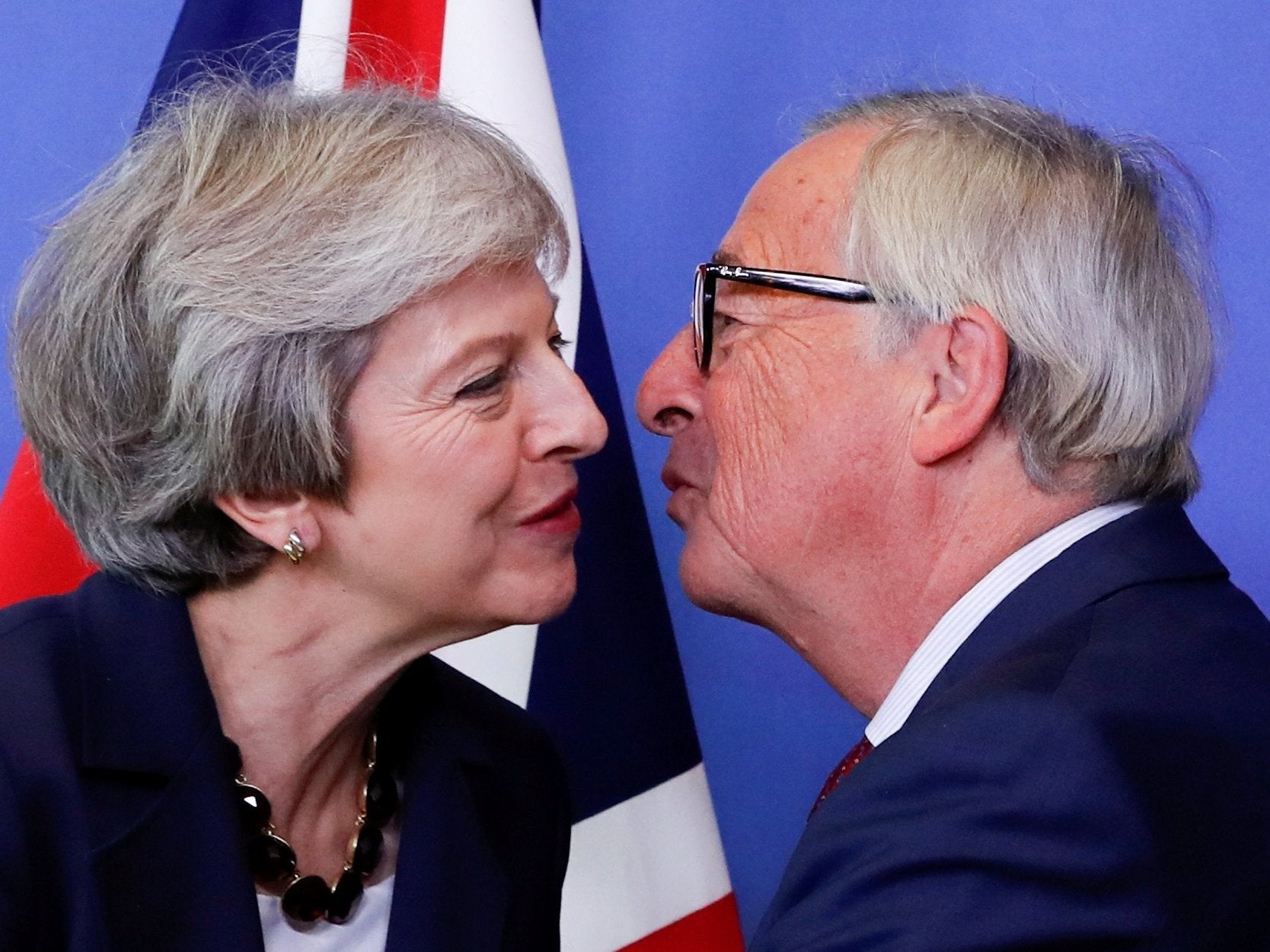Theresa May heads to Brussels on Wednesday to meet Jean-Claude Juncker in a bid to hammer out the final details of the Brexit deal with the EU.
The prime minister’s visit comes days ahead of a European summit to sign off the agreement, but amid a heated row in her own party over whether it should be backed.
Ms May’s Northern Irish DUP partners in government, Labour, Conservative rebels and even a number of Tories in the party’s moderate centre have all said openly they will oppose the plan when it comes to a vote in the Commons.
The prime minister did appear to be making a little progress in her attempts to overcome some Tory objections to the withdrawal agreement part of the deal. She has also avoided a vote of no confidence in her leadership for the time being.
Ms May will see European Commission president Mr Juncker in the late afternoon on Wednesday with talks focussing on details of the outline future relationship.
On Thursday Ms May will also hold discussions with the chancellor of Austria, who holds the rotating presidency of the European Council.
A Downing Street spokesperson said the meetings should be seen as part of the negotiations on the outline “future framework” – the part of the Brexit deal broadly setting out the shape of post-Brexit relations with the EU.
But it is the withdrawal agreement part of the Brexit deal – containing the controversial Irish backstop – that continues to cause No 10 problems at home.
DUP deputy leader Nigel Dodds renewed his call for Ms May to ditch her proposed version, saying: “With the rejection of the prime minister’s withdrawal agreement on all sides of the House and across all parties, it is increasingly clear this deal does not have support necessary to pass the meaningful vote in parliament.”
In a sign that the Tories’ relationship with the DUP is crumbling, the Northern Irish party withheld their votes during parts of the Finance Bill on Monday.
It emerged that former foreign secretary Boris Johnson – Ms May’s leadership rival – will attend the DUP’s conference in Belfast this weekend, as well as chancellor Philip Hammond representing the government.
A large amount of opposition to Ms May’s deal is around what happens to keep the Irish border open if no new trading relationship has been fully agreed by the end of the transition period in December 2020.
Until now the prime minister has said that the current withdrawal agreement includes two options, an extension to the transition period or the backstop, a form of customs union hated by Brexiteers because to leave it the UK needs the mutual consent of the EU.
Cabinet ministers resign over Brexit deal
Show all 13In a bid to assuage Brexiteers, Downing Street said the current agreed text could also allow for a third option whereby “alternative arrangements” are found, possibly including a technological solution that would avoid checks at the border, but mean the UK can still leave the customs union.
While many believe the technology needed for such a solution is not yet advanced enough, Brexiteers including former cabinet minister David Davis have argued that it could be the key.
But while some may be persuaded by the move, others like chair of the European Research Group (ERG) Jacob Rees-Mogg are unlikely to be convinced.
An attempt by the ERG to raise the needed 48 letters from Tory MPs to trigger a vote of no confidence appeared to finally peter out on Tuesday, but Mr Rees-Mogg signalled that the danger was not over yet.
He said: “I think it is now or the prime minister will lead the Conservatives into the next election.
“You find MPs privately who will say to you they think that is a really good idea in any number and I would be quite surprised.”
Subscribe to Independent Premium to bookmark this article
Want to bookmark your favourite articles and stories to read or reference later? Start your Independent Premium subscription today.


Join our commenting forum
Join thought-provoking conversations, follow other Independent readers and see their replies